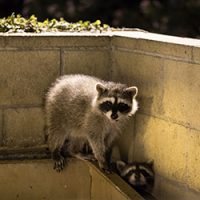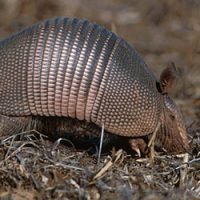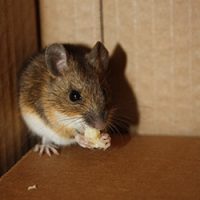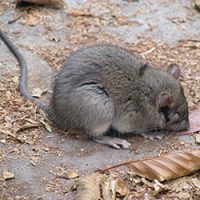Kansas City Wildlife Removal
Now offering same day service & free inspections
Get a Free Quote*
*some geographical restrictions
About Us
Pest Control in Kansas City
The City of Fountains is home to a variety of wildlife habitats including prairies, forests, and wetlands.
Whether you live in Overland Park, Prairie Village, or Leawood you may find mice, beavers, bats and other wildlife populations seeking shelter in the quiet areas of your home, presenting a big problem with the potential for extensive property damage. In need of pest control in Kansas City? The Trutech Wildlife Service team is here to help.
Wildlife Removal Services
Trutech Wildlife Service offers long-term solutions while providing humane anime removal services in Kansas City.
Pest Control Services
Carpenter ants, termites, and brown recluse spiders are common in Kansas City, causing property damage and other issues. Our team offers quality pest control services in Kansas City to tackle pests so you don’t have to.
Not Sure What Critter is in Your Kansas City Metro Home?
Hearing strange noises? Wondering if something other than your family might be sharing your home in Kansas City? With this quick, fun quiz, gain valuable insights into potential pests and critters that could be lurking in the shadows of your home.
Contact Us Immediately
Need Immediate Wildlife Removal or Pest Control in Kansas City? Contact Us Today!
Take care of unwanted wildlife in your Kansas City home quickly with Trutech’s professional animal control team.
Get a Free Quote
Why Choose Trutech for Kansas City Pest Control?
Educational
Kansas City Wildlife Information
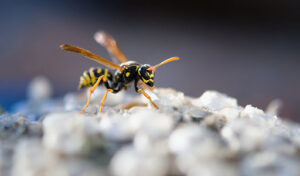
Expert Tips on Wasp Nest Removal
Wasps tend to become more aggressive in late summer, and it lasts until the fall. By late summer, wasp colonies
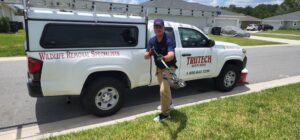
Common Household Pests & Nuisance Wildlife in Kansas City
Straddling two states, Kansas City lies at the confluence of the Missouri River and Kansas River. With rolling hills throughout
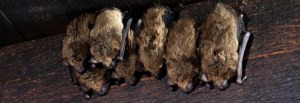
Bats in Kansas City
Kansas is home to fifteen species of bats, and all of them are insectivores. Bats in Attic in Kansas City
Areas We Service
Proudly Serving Kansas City Metro
Our team of experts have spent over 40 years developing and training to provide exceptional wildlife removal and pest control services in Kansas City. When you work with Trutech, you can feel confident that the job is being done right.
- Lawrence, KS
- Leavenworth, KS
- Leawood, KS
- Lenexa, KS
- Merriam, KS
- Overland Park, KS
- Olathe, KS
- Shawnee, KS
- Blue Springs, MO
- Excelsior Springs, MO
- Gladstone, MO
- Independence, MO
- Liberty, MO
- Lee's Summit, MO
- Raytown, MO
- Pleasant Hill, MO
There is no one-size-fits-all solution; each job requires a custom approach. We inspect every home and build a custom plan to resolve any wildlife problems. We use a variety of techniques including cage traps, direct capture, one-way valves, and deterrents. Exclusion techniques are the most effective way to get rid of animals.
We provide customized solutions to each individual customer so that we may solve the issue as quickly, efficiently, and cost-effectively as possible. The size of the house, type of animal, number of nuisance animals, and length of time of infestation affect the estimated price of wildlife removal.
An estimate may change based on the amount of animal activity or work needed to be done. All estimates are finalized with an exact price before any work begins.
Our goal is to remove any wildlife as humanely as possible — often that means catching and releasing the animal.
Trutech® does not hire subcontractors for animal removal services. We employ expert technicians who are provided ongoing education and training in all aspects of animal control and removal. Many of our technicians hold degrees in Wildlife Biology, Entomology (insects), Ornithology (birds) or Herpetology (reptiles), some with Masters degrees in their specialty field.
Yes! We are licensed and insured.
We start by first removing the wildlife on your property, and cleaning up any damage. From there we’ll work with you to create a customized prevention plan so you won’t have the same issue again.
Typically an animal dies in your home because it became trapped in a hard-to-reach and hidden area. Our expert technicians have the experience and knowledge to find it and then safely remove the carcass from your home.
Our Wildlife Technicians use a pet-safe odor eliminator made of natural organisms and enzymes that consume decaying organic odor-causing matter, eliminating the source of the lingering odor. We use aerosols, oxidizing agents, foggers, and disinfectants with germicides to deodorize until nature completes this task for you.
You should consider a full home exclusion after the smell has been neutralized. Nuisance wildlife found its way into your house once. That entrance leaves your home vulnerable to future animal infestations. Full home exclusions are the most effective form of wildlife control.


